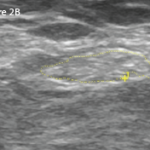In 2006, Zimmer, Inc. received clearance from the Food and Drug Administration (FDA) to market a Gender Solutions version of their NexGen prosthesis for use in total knee arthroplasty (TKA). Some orthopedic surgeons saw the gender-specific knee prosthesis (GSK) as an interesting new adjunct to traditional methods. Others saw it as a solution in search of a problem.
“Gender issues in medicine are currently hot issues,” says Matthew J. Kraay, MD, professor of orthopaedic surgery at Case Western Reserve University in Cleveland. “Most of the traditional implants were designed from studies that included both men and women.”
Anatomical Differences
Studies have outlined some of the anatomical differences that exist between men and women. Men have been shown to have an increase in contact area in the patello-femoral joint at higher flexion angles.1 There are also indications that women tend to have a narrower medial-lateral dimension than men.2
Traditional femoral implants are wider and may overhang the bone, possibly rubbing against other tissues and causing pain. For women, studies have found statistically significant associations between the size of the femoral component and the amount of overhang, with larger sizes having a greater amount of overhang.3 However, some question if the amount of overhang is really a cause for concern.
Zimmer’s GSK was developed after analyzing the knee anatomy of 800 women. The developers noted that, for a given femur height, women’s knees tend to be narrower than men’s, on average 0.8 mm less on the lateral condyle and 1.3 mm less on the medial. Also, because women’s hips are wider relative to their height, their limbs are set at a different angle than men’s are.
“Ideally, what we are trying to do with TKA is reproduce a patient’s anatomy as closely as possible,” says Scott M. Sporer, MD, assistant professor of orthopaedic surgery at Rush University Medical Center in Chicago.
On the other side of the decision, using a GSK can have a downside. If a female patient’s anatomy more closely resembles that of a male, there may be an underhang condition where the prosthesis doesn’t cover the entire bone. This situation can cause the implant to settle into the end of the femur, especially in those with bone loss from rheumatoid arthritis or long-term steroid use.
Do Differences Affect Outcomes?
“Zimmer made a number of changes to make their GSK a little more specific for women, but the question is whether these changes had a significant impact on outcomes,” says Friedrich Boettner, MD, assistant attending orthopaedic surgeon at the Hospital for Special Surgery in New York City. “That would imply that, before the advent of the GSK, female patients had measurably worse outcomes following TKA, and that is just not true.”

